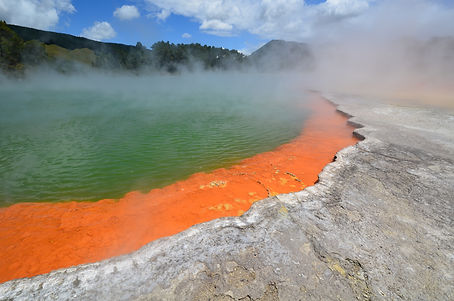Why choose New Zealand as a teacher or education worker?
Teaching in New Zealand is a unique experience compared to other countries, largely due to the incredible indigenous Māori culture that permeates the educational landscape. This culture is evident in schools through various elements, such as kapa haka, waiata, tikanga, and te reo Māori. It’s not just about education; it’s about embracing values that shape the identity of educators.
The professional standards for teachers in New Zealand are grounded in values that define, inspire, and guide teaching practices, including whakamana, manaakitanga, pono, and whanaungatanga. These principles foster a welcoming and supportive environment for all students, emphasizing the importance of connecting with Māori culture and community. For those considering teaching in NZ, there is an opportunity to engage deeply with this vibrant cultural experience. For more insights, check out the documents further down the page to give you a good understanding of the cultural competencies for teachers of Māori learners.





Safe Environment
New Zealand continues to rank highly in global safety metrics. In the 2024 Global Peace Index, it holds the 2nd position, reflecting low crime rates and a strong sense of community safety.
Flexible Regulations
The Education Review Office (ERO) reported in 2024 that New Zealand's educational framework allows for increased teacher autonomy, enabling educators to create tailored learning experiences that cater to diverse student needs.
Ample Land Space
According to Stats NZ's 2024 Housing Report, the average size of residential properties remains around 620 square meters, providing more space for families compared to many urbanised countries.
Self-Governed Schools
As of 2025, there are over 2,600 state and state-integrated schools in New Zealand, operating under a self-governing model that empowers local communities to make decisions regarding their educational practices.
Community Engagement
The Ministry of Education's 2024 report highlights that approximately 93% of schools actively engage with local Iwi and community groups, reinforcing the importance of culturally responsive education.
High Demand
A 2024 labor market report from the New Zealand Ministry of Education indicates a projected shortfall of 2,500 STEM teachers by 2026, emphasising the growing need for qualified professionals in these fields.
Impactful Roles
The OECD Education at a Glance 2024 report shows that over 85% of students in New Zealand feel they have supportive relationships with their teachers.
Lifestyle
High levels of job satisfaction, supportive work environment and quality of life acting as key factors contributing to overall happiness in the teachers profession.
Living and teaching in New Zealand offers a unique and enriching experience that sets it apart from other countries. With its stunning landscapes and vibrant culture, New Zealand provides a safe environment for families and children, making it an ideal place for teachers looking to settle down.
The country’s educational system is characterised by a flexible approach, allowing educators to thrive without the constraints of rigid regulations. Teachers can benefit from ample land space for home ownership, fostering a sense of community and belonging. The self-governed school model encourages collaboration with local Iwi, ensuring that education is deeply rooted in the community's values and traditions.
Additionally, there is a high demand for STEM (Science, Technology, Engineering, and Maths) teachers, providing excellent career opportunities. In New Zealand, teachers not only contribute to the academic growth of their students but also play a vital role in shaping the future of a nation that values education, inclusivity, and community engagement.
Teachers code of standards
Our Code Our Standards |
Ngā Tikanga Matatika Ngā Paerewa
01
WHAKAMANA
Empowering all learners to reach their highest potential by providing high-quality teaching and leadership.
02
MANAAKITANGA
Creating a welcoming, caring and creative learning environment that treats everyone with respect and dignity.
03
PONO
Showing integrity by acting in ways that are fair, honest, ethical and just.
04
WHANAUNGATANGA
Engaging in positive and collaborative relationships with our learners, their families and whānau, our colleagues and the wider community



